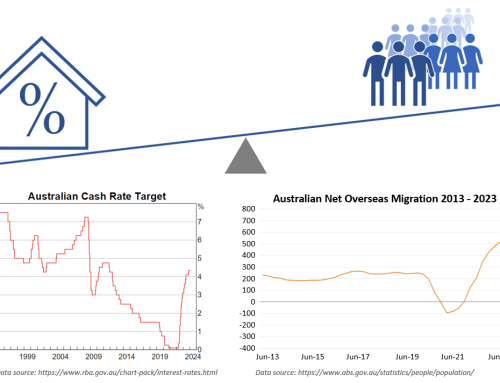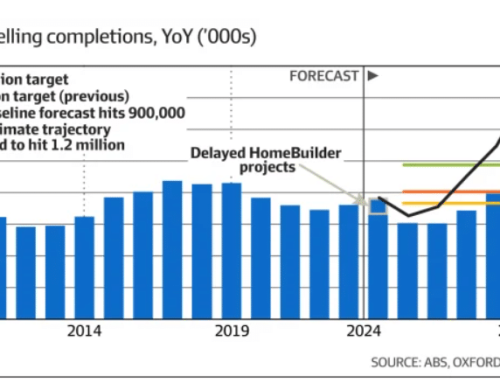3 Tips for Tradies to Target Profitable Clients AND Reduce Risk
In small business, it’s easy to bite off more than you can chew. Sure, it’s great to be ambitious (as the #1 coaching firm in Australia, we LOVE ambition!) and set your sights on winning big projects, but ultimately a smarter approach to controlling risk is going to pay off bigger rewards. Much. Bigger. This is where market segmentation comes in. “Market segmentation” is just a fancy-pants name for dividing a huge pool of potential clients into smaller groups that share similar traits.
As a business coach, I commonly mentor small business owners such as electricians and plumbers who are struggling to segment their market and target the right clients. A common mistake I have seen tradies make is to target the wrong type of clients, by focussing on large contracts that represent massive financial risks to their business. What if you could target customers in a way that will decrease your business risk while still increasing your profit? Sounds too good to be true? Let me share with you a perspective that might make things clearer about where are the best places to find the right type of work for your business.
In trade based businesses, there are generally two common types of work for you to target:
- Do and charge jobs (known as ‘service’ work)
- Quoted jobs (known as ‘project’ work)
Do and charge (‘service’ work)
In my experience, the safer option for trades based business is to focus on ‘do and charge’ jobs. For this work, you simply complete the job at an hourly rate and then charge accordingly. As long as your charge out rate is appropriate and you have a decent margin on materials, you will come out in front. Sure, you won’t make a massive amount on the individual jobs, it’s all about achieving a larger enough volume of jobs.
This type of work can be broken down further into 3 categories:
- General repairs and maintenance. This is when you are called in to do day-to-day jobs, e.g., general repairs on a house, or maintaining a factory machine.
- Urgent and breakdown. This is similar to ‘repairs and maintenance’ but has a time component, e.g., a house has lost power or a plumbing leak in a building.
- Preventative maintenance. This represents an agreed upon service contract where you go in and complete preventative maintenance work, e.g., Emergency and Exit Light Testing and machinery servicing.
Quoted (‘project’ work)
Where some tradies can start to take on more risk is when you look at ‘quoted’ or ‘project’ work with a fixed price. Here, if you have quoted 20 hours but the project ends up taking you 25 hours, you have just worked 5 hours for free. Plus you have wasted additional costs on labour and material!
This type of work can be broken down further into 5 categories:
- Maintenance fix ups. These jobs are generated as a result of some previous ‘do and charge’ or ‘service’ work. For example, a plumber has patched a roof multiple times, and the client finally asks for a quotation to replace the roof. This can be a very profitable area of work.
- Domestic house works. This includes rough ins and fit offs at domestic houses that are new house builds or renovations. This can also be very profitable work.
- Shop and office fit outs. Fit outs are becoming bigger projects. Typically, it involves fitting out a shop or office in a very time conscious environment where you have limited control. Again, these jobs are quite profitable.
- Semi commercial work. This involves small commercial projects but they are not the large developments with significant compliance requirements, e.g., small unit developments, school jobs, child care work, and aged care jobs. These jobs are also quite profitable.
- Large commercial work. There are specialist builders who focus on large commercial jobs with significant compliance components. The people that succeed here have a long history in this market. It is not an area for new entrants to get into lightly because there is a lot of required knowledge around the trade you are working on, but it also requires expertise in contracts, scheduling and job profitability assessment. This is often where business owners get tripped up, and you can end up taking on projects without really understanding the risks and costs involved. So remember, to be profitable in this market, you must be extremely experienced and have the appropriate level of specialisation.
Top 3 tips for assessing your project’s risks
How do you assess the higher risks associated with ‘project’ or ‘quoted’ work? Here are my top 3 tips to help you pick the right jobs with the right customer.
- What is your relationship with your client? How strong is your relationship? Clue: repeat work and/or referrals from them is a good indicator. Do they care about your long-term business success? Clue: avoid clients who haggle over small prices or ask which parts they can do themselves. Be wary of jobs involving clients who only care about short term outcomes.
- What is the level of competition? Obviously, if lots of competitors are quoting for the same piece of work you need to provide an appropriately competitive price. However, if you are the only one quoting, then it’s a different story. In this situation, you can maintain much healthier margins.
- Do you have control over the job? The control you have over the job is a key business risk that is often overlooked. If you are working on a large building site with 15 other trades you only get a small window of opportunity to go in and do your work. This means that you have very little control if one of the other trades runs late, which inevitably happens. Now your staff scheduling is thrown out the window. You might have a good relationship and good margins, but by lacking job control you can’t plan your business.
Choosing the right jobs doesn’t have to be difficult, but you must remember to consider what type of work offers you the highest overall profit at the lowest risk.
Unsure of where to start? Give us a call at Tenfold Business Coaching today on 03 9813 8777.





